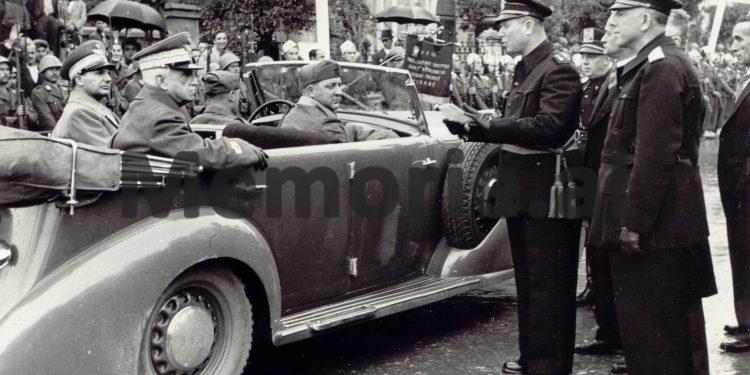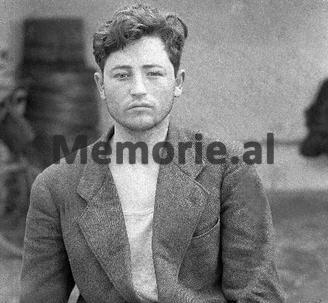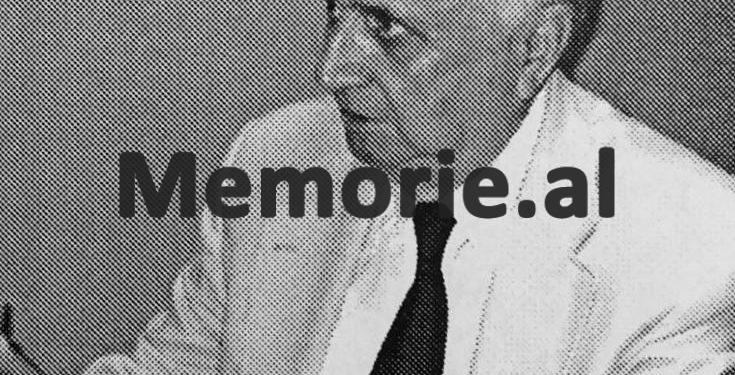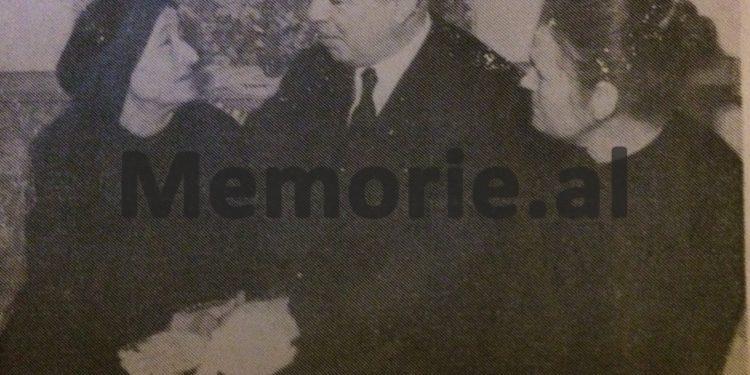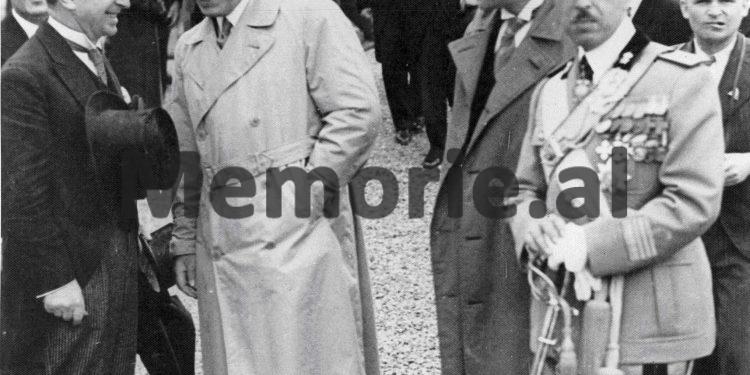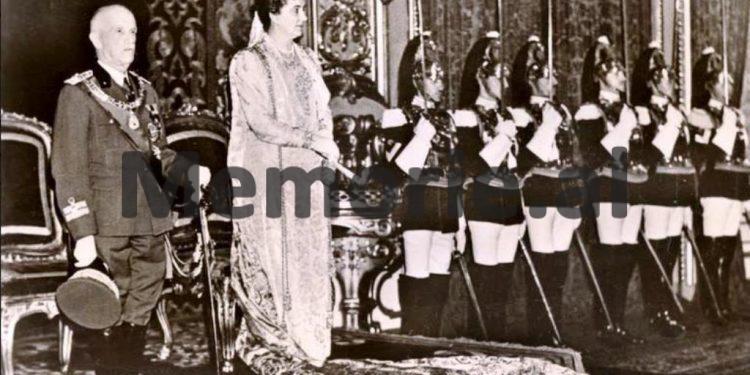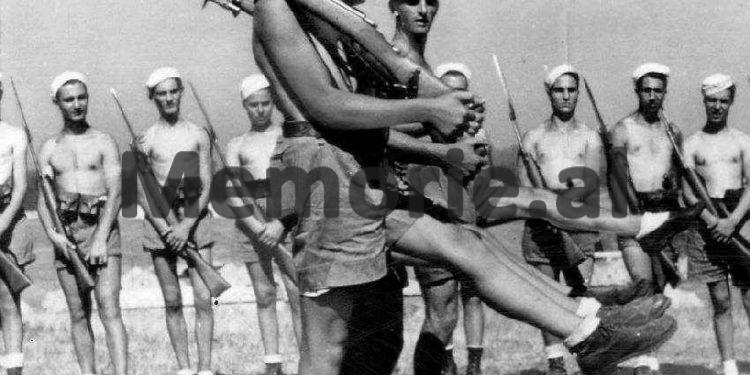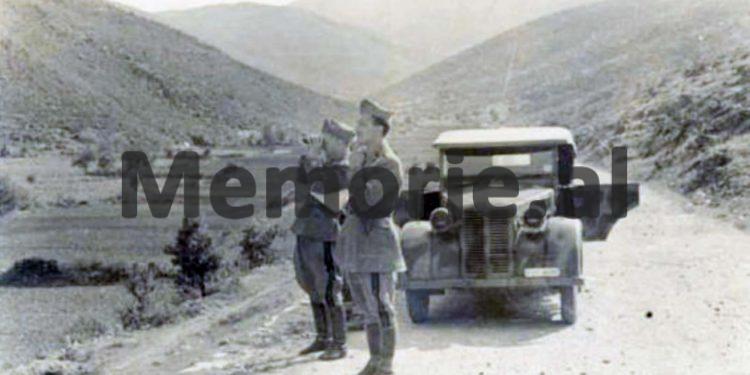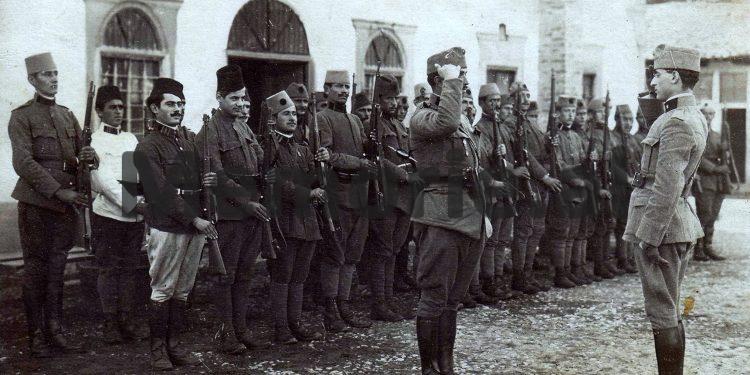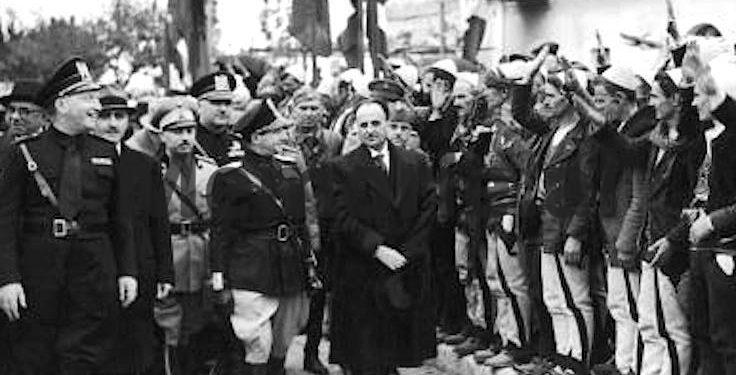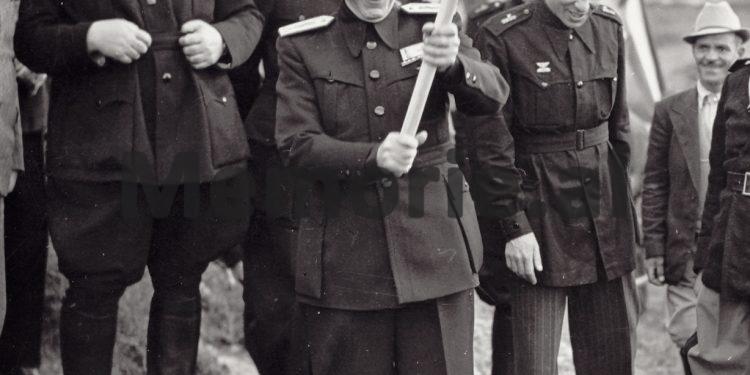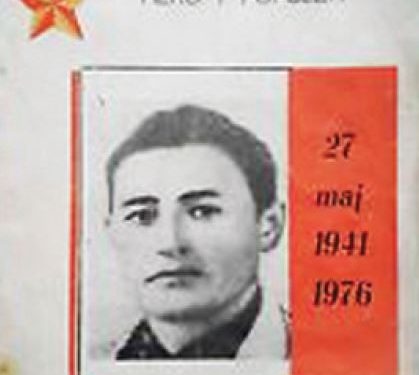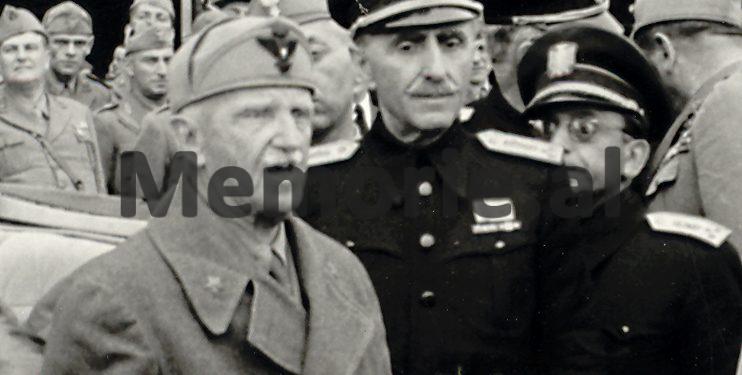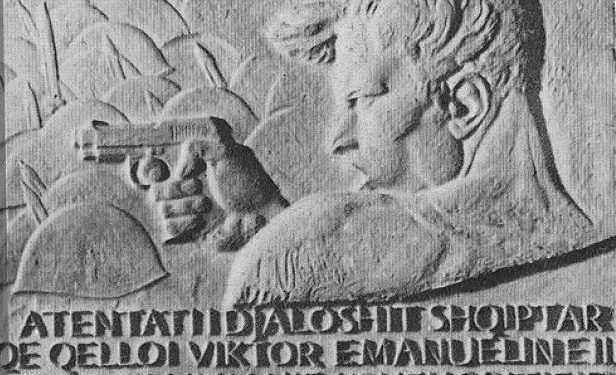Dashnor Kaloçi
Memorie.al publishes the unknown story of the assassination attempt that took place in Tirana on May 17, 1941 against the King of Italy and the Emperor of Ethiopia, Victor Emmanuel III, as he was leaving Durrës Street for Lapraka Airport after the end of his visit to Albania. The rare testimony of 90-year-old Genc Koka, who lives in the United States, whose father, Colonel Sami Koka, former Chief of Staff of King Zog, had accepted the boy from Piqerasi as a servant in his house at the end of Kavaja Street, after the recommendation made by his close friend, Dr. Mokini, who served as a physician to King Zog. Vasil Laçi’s deep adoration of King Zog and his hatred of fascist Italy were the motives behind his bold decision to assassinate King Victor Emmanuel III, as he had previously been able to secure a “Beretta” gun. at the house of Colonel Sami Koka where he had served until a few days before that event. The boyish attitude of the boy from Piqeras during the investigation made by the Italian authorities where he did not show who had given him the weapon and how that event ended after the intervention of the Minister, Fejzi Alizoti, Francesco Jacomoni, and the Prime Minister, Shefqet Vërlaci to Duce.
79 years ago, on May 17, 1941, as the King of Italy and the Emperor of Ethiopia, Victor Emmanuel III (who had also been baptized as King of Albania after the surrender of Skanderbeg’s Crown on April 14, 1939), had At the end of his seven-day visit to Albania and was leaving for Lapraka Airport, on Durrës Street, he was shot several times with a revolver in his direction by a 19-year-old boy, originally from the village of Piqeras in Saranda, who was called Vasil Laçi. While King Victor Emmanuel III escaped peacefully without being killed, only thanks to the Italian secret police agents who were on high alert that day and immediately caught the revolver of the boy, who served as a shepherd in one of the most luxurious hotels in Tirana at the time, the bullets of his pistol easily whipped the Albanian Prime Minister, Shefqet Vërlaci, who was in the car with the King of Italy. But who was Vasil Laçi, where he had worked before the assassination, and what were the real motives that pushed him to shoot at the King of Italy? Regarding this sensational event in the history of Albania, which the historiography and propaganda of the communist regime of Enver Hoxha manipulated for nearly half a century, 90-year-old Genc Koka (living in the USA) sheds light for the first time. ) the son of the former Chief of Staff of Zog, Colonel Sami Koka, the man who gave the revolver of the assassination to Vasili.
Mr. Koka, when did you first meet Vasil Laçi?
Vasili and I first met there in May 1939, when he came to our house. At that time, our family lived in a two-story house with a yard, which is still there today, but ruined, somewhere at the end of Kavaja Street, very close to the Museum of Natural Sciences, which has already been demolished. That house belonged to Qeramudin Sulos, originally from Libohova, and we had lived there as tenants since 1937, when our father, Colonel Sami Koka, was deputy chief of staff of the State Staff and commander of the Zog Kingdom border. Some other families lived near our house, such as that of Minush Shala, Olga Plumbit, Bardhyl Pogoni, etc.
Why did Vasili come to you?
Vasili came to us to work as a waitress, following a recommendation given to him by his father’s close friend, Dr. Mokini, who had his house on Kavaja Street, in front of the building of the Folklore Institute. Dr. Mokini was well known in Tirana because in addition to being King Zog’s personal physician, he was the only one in Tirana to have a monkey at home. On the recommendation that Dr. Mokini had given Vasili to our father, he spoke the best words for that boy.
Do you remember Vasili coming to your house?
I remember him very well and I remember the moment when he knocked on our door. Vasili had a noble face and was carrying an old suitcase. He showed our mother the letter that Dr. Mokini, and while she had not yet read it, my older brother, sister, and grandmother begged my mother to accept the unknown boy inside, whose face radiated a lot of kindness. No more of our prayers than the doctor’s recommendation, the mother immediately put Vasili inside, showing her the room where she would sleep and the work she would do in our house. From that day on, Vasili became the son of the house and with his work and behavior, he gained an absolute trust in our parents, who handed him all the keys, entrusting him even a few gems of precious stone. our mother. In a way, did this in any way cause the jealousy of one of the other servants of our house, Ali, who until then had been the most trustworthy?
Why, when Vasili came to you, did you have other servants at home?
Before Vasili came to our house, there were two other servants: Tahir Tola, who worked as a cook for the military, and Ali, originally from Korça, who does not remember his last name, who was also the main man in the household. I don’t know if these people still live, but Tahir Tola was until recently the head chef at Lezha Tourism. In addition to these, our father’s orphanage, Thimi, originally from Vlora, also lived in our house. After the war, he became a major of the State Security and worked for a long time in Elbasan.
Do you remember any conversations your father had with Vasili?
A few days after Vasili arrived at our house, his father was interned on the island of Sardinia in Italy (the city of Sasari), accusing him of being anti-fascist. But under Italian law, the father was there in the uniform of a colonel and without being stripped of his rank, such as ordinances, housekeepers, and so on. During the year that Vasili stayed at our house, my father came two or three times on leave, and in those days he was there to meet some of his friends, former ministers, and senior soldiers of the Zog Kingdom. When Vasili entered their room to be served coffee and brandy, they stopped talking. as they held political discussions against fascist Italy and in favor of Zog. But the father immediately told his friends, “Don’t interrupt the conversation because this guy is like us, he has deep Zogist convictions and he wants the Kingdom of Zog back.”
Was it true what your father told you that Vasili was a Zogist?
It was more than true. I remember as now, that in our house then we hung three large pictures hanging on the wall with a frame: Ismail Qemali, Skënderbeu, and King Ahmet Zogu. After the invasion of Albania by Italy, on the photo of Zog we put that of Emperor Octavian August and only Vasili was aware of this from all the servants. Whenever he cleaned the room where the photos were, he would remove Augustus’s, and by cleaning Zog’s, he would say to our mother: our Bird ”. His mother was serious and said, “Oh, son, they are God’s work, only he knows.” Our mother did not approve of his wishes for King Zog, because at that time they would put him in prison for that.
Outside your home, who did Vasili meet, who were his friends?
I don’t know what to say about this, but I know those who came to our house like Emil Plumbi, Qeramudin Sulo, Hasan Fejzo, Bardhyl Pogoni, and others. They were 17-18 years old at the time and came to our house because they were close friends of my brother, Pellumbi. Although Vasili was three or four years older than them, he enjoyed political conversations and everything that was said there was against Italy and fascism. On its wall stood a large map (published by the geographical society “De Agostini”) which my father had long ago for military affairs. Before that map, Vasili stood for minutes, saying, “What the Italians want here is our land. Here is my village. How did the ships of Pyrrhus of Epirus drown when he went to Rome and did not sink General Guxon when he came here ”?!
When Vasili assassinated King Victor Emmanuel, was he with you?
Vasili himself asked to leave our house, even though his mother did not want to, and this happened about 15 days before he carried out the assassination. At the time the news broke that King Victor Emmanuel was visiting Albania, Vasili went and talked to the owner of the Internacional hotel, Mr. Chano, who hired him without any recommendation. That thing happened after a phone call from our mother, who told him that Vasili was a genius boy. Even after he started working there, Vasili came back to our house and three, four days before the event, while we were standing in the backyard, he asked my brother, Pellumbi, to give him a revolver. We at that time had several weapons of different types, which were in working condition and also an old collection of weapons, such as that of Tafil Buzi, the sword of Marko Bocari, our grandfather, etc. The pigeon told Vasili to choose this to want him to pass them in his hands every day, wiping them of dust. Vasili asked for a “Beret” that was small and I went upstairs and brought it to him as my brother told me.
How did you learn about Vasili’s assassination?
We learned of the assassination when carabinieri came to our house with a group of SIMI agents, who were looking for our father, Sami Koka. They made a superficial check and asked about Vasil Laçi, remembering that his father had pushed him. Fortunately, Father Samiu, who was interned in Sardinia, Italy, and his mother, who was very shocked, immediately called Minister Fejzi Alizoti, telling him about the situation we were in. Fejziu, who was married to our father’s sister, intervened until Jakomoni and we had no problems, and everything ended with that.
What was the official version given at the time of the assassination?
Official propaganda tried not to present him with assassination attempts for political motives and opened words as if Vasili had shot at the Prime Minister, Shefqet Vërlac, for reasons of family enmity. This was the official version given by the official propaganda of the government and that of the Albanian Fascist Party, but in reality, Vasili shot at the King of Italy only because he hated them and wanted the return of King Zog.
Are the versions given in the movie “Emperor’s Bullet” valid?
They are all fiction, as in Jules Verne’s books. None of them stand. Vasili shot at King Victor Emmanuel, hating fascism and dreaming of Zog’s return.
During the time Vasili was kept in the cell, did your family have any contact with him?
We could not go to meet him, as we severely compromised our father, but without asking us, Vasili went to meet the two servants, Thimi and Ali, in the cell. The Italians allowed them to go to a meeting with him, thinking that they would discover an organized group and immediately arrested them, tying their heads and legs with chains. Albanian carabinieri came and told our mother, who, very worried, immediately went to Fejzi Alizoti, as this greatly impressed her father. Fejziu was also very worried and together with Tefik Mborje they went to Jakomoni. In fact, after that assassination attempt, the Italians wanted to carry out massacres, as in Africa, where Graciani had burned entire villages with gasoline, but after the intervention of Shefqet Vërlac to Duçja, that thing was closed and nothing happened. But in closing that problem, Vasil Laçi directly influenced, who when they took our two servants to the meeting, said that he did not know them at all. Thimi also understood the game and said they were looking for another Vasil in the meeting. After that, the Italians inflicted a good blow on them and then released them. The Italians were satisfied only with the execution of Vasili, that giant boy who has remained in my memory for the bravery he showed. Two weeks after Vasili’s execution, our house was kept secret and no radio was turned on.
After what happened, did you have any contact with Vasil Laçi’s family?
No, we didn’t. During the war it was difficult for circumstances known, but even after the war it could not happen, as our family was declared reactionary. My older brother, Pellumbi, fled to Italy in 1945, then to the United States, and never returned, while my father and my sister were sentenced to many years in prison.
What was written in the book Unquenchable Stars about the boy from Piqerasi and how did communist historiography present Vasili’s assassination?
Although the official historiography of the communist regime before the 1990s was never spared to manipulate many of the events of the Antifascist War and those after it, surprisingly, the assassination of the boy Vasil Laçi against the King of Italy, Victor Emanuel III, for which Enver Hoxha personally spoke, she did not appropriate and did not present as a work of the communists? In the book Unpainted Stars, about this event, among other things, it is said: “I did it myself, for Albania / Long live Free Albania / Down with fascism”! The assassination of the Albanian boy, who shot Viktor Emanuel III on Durrës Street, – said Comrade Enver Hoxha, – was the beginning of a great uprising that was being prepared. May the milk be halal! Albania now needs kurbans! – said Vasil Laçi’s mother, the day she learned about her son’s death. Vasil Laçi was born in 1923 in Piqeras, Saranda. As he finished primary school, he left the village and went to Tirana. He wanted to continue school. But that was just a dream come true for him. As a minor, he entered the war of life. He worked sometimes as a servant and sometimes as a mercenary, always in need and poor. He eventually served in a hotel. Vasili was quite brave and had given evidence for this. He was once told that he had beaten two militias in the courtyard of the hotel, and even threw a revolver at one of them. One night a man who Vasili knew as a communist slept in a hotel. And when his friend told Vasil Laçi that he had asked for the soap to be washed, Vasili had instructed him: “Not the soap, but also the soul, if he asks you to give it to him.” On the day the Emperor left Albania, Vasili had woken up at night and told a friend: “Today it is my turn to escort the Emperor.” He hugged his friend tightly and left the hotel. Spies, militias, and carabinieri roamed everywhere. From time to time the Emperor was expected to pass. “It simply came to our notice then. The Soviets, in an open car, passed through infantry, cavalry, fascist formations divided into three columns into both sides of the road, while the squadrons of planes flew over the “- this is what a newspaper of the time wrote. In this atmosphere of insecurity and fear, surrounded everywhere with helmets and weapons, the young patriot, Vasil Laçi, entered the middle of the crowd and welcomed the opportunity. He raised his bandaged hand over the helmets and muzzles of the fascist guns and fired five times in the direction of the Emperor. The Albanian people, with the hand of one of their sons, shot Emperor Victor Emmanuel III with a bullet “.
Who is Genc Koka, a 90-year-old living in the US?
Genc Koka was born in the Italian city of Turin in 1930, after his father, Colonel Sami Koka, a senior soldier at the Zog Monarchy, studied at the Higher Institute of War. Genci was the third child of the Koka family and he also had a brother and sister older than himself, Pëllumbin and Rita. As early as October 1944, when the war had not yet ended, their father, Sami Koka, was arrested by the Communists and, after being held for some time by the investigator, in March 1945, was sentenced to 30 years in prison by the Special Court. Genci spent his childhood in Tirana, were among his closest friends were Robert Schwartz, Amik Kasaruho, Emil Totozani, Vasil Melon, Milto Dadon, etc., with whom he was arrested for distributing tracts against the regime. After graduating from the Technical School (November 7) in Electrical Engineering, Genc was sent to Bulqiza, where he worked for many years as a surveyor. After he managed to finish the night and very vicissitudes of high school for Chemistry-Industrial, (as a declassified graduate he was given only in 1979) he was appointed as an engineer in the Brick Factory in Vora. In October 1990, with the guarantee of his brother, Pellumbi (an employee at the Pacific Atomic Base decorated by President Reagan with the Capitol Flag for US Merit), Genci and his wife, Bora Rexh Meta, and children, left. in Italy and then in the US, where they currently live./Memorie.al




